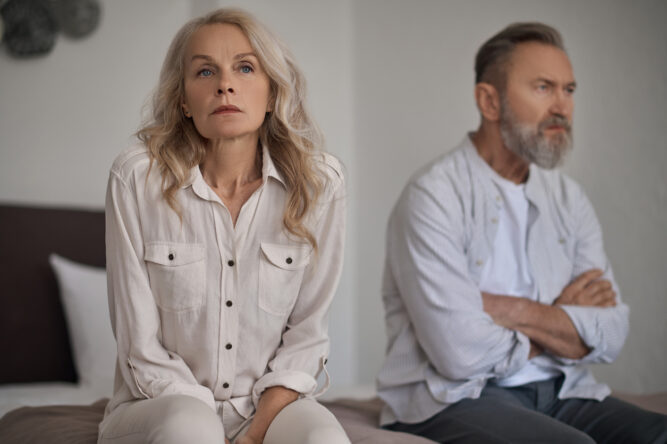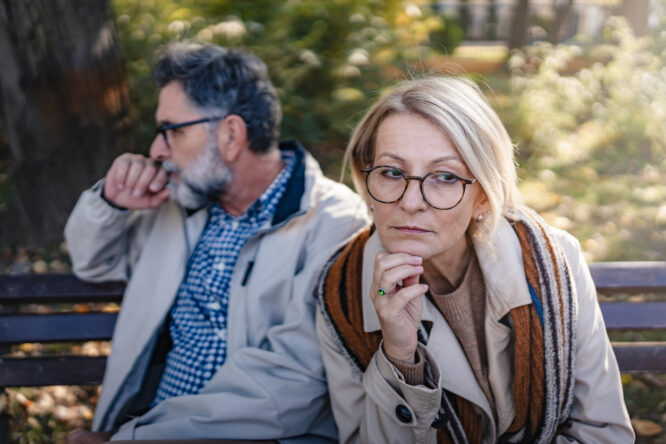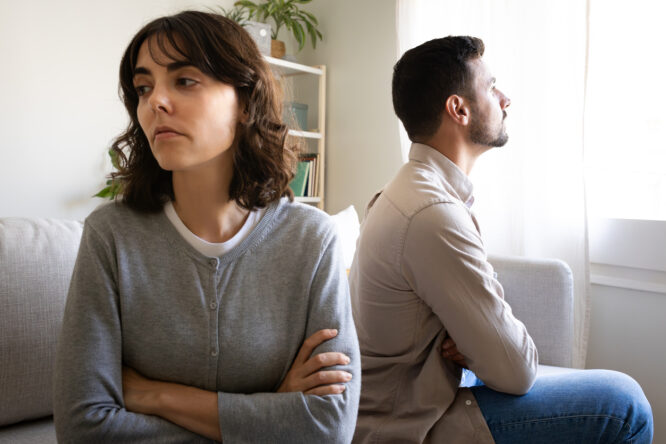Abuse is insidious, often going unnoticed by outsiders for far too long.

That’s largely because it doesn’t always leave bruises, involve yelling, or happen in the open. And for the person inside the relationship, the reality is often confusing, layered, and far more emotionally complicated than outsiders realise. When people on the outside say, “Why don’t they just leave?” or make snap judgements, it adds another layer of shame. Here are some of the things people in abusive relationships often wish everyone truly understood—without assumptions or blame.
1. It’s not always bad all the time.

Many abusive relationships have moments of kindness, laughter, and even deep connection. That’s part of what makes it so hard to leave—the hope that those good moments will return, and the belief that they mean something real. The cycle of abuse often includes affection and remorse, which can be just as powerful as the harm. People on the outside often only see the damage, not the complexity. However, for the person inside, it’s rarely black and white.
2. Fear can look like love from the outside.

When someone is constantly checking in, defending their partner, or changing their behaviour to avoid upsetting them, it may look like devotion. However, it’s often fear disguised as loyalty. People in abusive relationships often develop coping mechanisms that outsiders misinterpret. What looks like commitment can actually be survival in disguise.
3. Abusers don’t always “look” abusive.

Abusers can be charming, funny, generous, and well-liked. They often know how to present themselves in public, which makes it harder for other people to believe what’s really happening behind closed doors. That disconnect often makes survivors doubt their own experience. When everyone else says, “But they’re such a nice person,” it creates isolation and shame instead of support.
4. Leaving isn’t always the safest option.

One of the most dangerous times for someone in an abusive relationship is right after they try to leave. Escalation is common, and many abusers become more violent or controlling when they sense they’re losing power. Judging someone for staying without understanding the real risks they face can do more harm than good. In some cases, staying temporarily is about buying time and safety, not giving in.
5. Emotional abuse is just as damaging as physical abuse.

Just because there aren’t visible bruises doesn’t mean the harm isn’t real. Emotional abuse chips away at self-worth, clarity, and identity, often in ways that last much longer than physical scars. Many survivors say the emotional manipulation—gaslighting, isolation, blame—was harder to recover from than any physical violence. It’s invisible to other people, but it leaves deep marks.
6. They may not even realise it’s abuse yet.

Abuse often starts subtly—through control, criticism, or guilt—and escalates as time goes on. Many people don’t even realise they’re in an abusive relationship until they’re deeply entangled in it. By the time they start to question things, they may already feel trapped, ashamed, or unsure of what’s actually happening. From the inside, it can take years to connect the dots.
7. The shame is overwhelming.

Many people in abusive relationships carry an enormous amount of shame—not just about what’s happening to them, but about not being able to stop it, explain it, or leave. That shame gets worse when people judge or minimise their experience. The fear of being pitied or blamed keeps many people silent long after they want to speak up.
8. Gaslighting makes everything blurry.

One of the most powerful tools in emotional abuse is gaslighting—when someone manipulates you into doubting your own memories, feelings, or instincts. As time goes on, it destroys your ability to trust yourself at all. It makes decisions harder, apologies more frequent, and boundaries easier to cross. From the outside, things might look “obvious,” but for someone being gaslit, nothing feels certain.
9. Financial control is a real form of abuse.

In many abusive relationships, one partner controls all the money—limiting access to income, tracking every purchase, or sabotaging job opportunities. This creates dependence and fear of starting over without resources. It’s not about laziness or comfort—it’s about survival. Without financial freedom, leaving becomes far more complicated, especially if children are involved.
10. They may still love their abuser.

Love doesn’t vanish just because harm is present. Many people in abusive relationships still feel deep affection, hope, or longing for the person who’s hurting them. It’s confusing—but very real. Judging someone for caring about their partner only adds to their inner conflict. Love and harm can coexist, and that’s what makes it so hard to let go.
11. They often protect the abuser.

People in abusive relationships may lie to friends, downplay incidents, or cover for their partner. This isn’t about denial—it’s about fear of what could happen if they’re honest, and the pressure to preserve an image of normalcy. They’re not choosing the abuser over support—they’re trying to survive in a situation that punishes truth-telling. It’s a coping mechanism, not a betrayal.
12. They may feel like no one will believe them.

If the abuser is well-liked or socially powerful, survivors often worry that speaking out will backfire. They’re afraid of being seen as dramatic, vengeful, or unstable, especially if the abuse was subtle or private. This fear keeps many people silent for years. The damage continues long after the relationship ends because their credibility was never protected to begin with.
13. Friends often disappear when they need them most.

Well-meaning friends can grow frustrated when someone stays with an abusive partner. Over time, they may pull away or go silent, thinking it’s not their place, or that the person is choosing the abuse. Of course, this is when support matters most. Isolation is one of the strongest tools of control in any abusive relationship. Walking away only reinforces that isolation.
14. “Tough love” doesn’t help.

Confronting someone with ultimatums or guilt rarely works, and often drives them further into the relationship. What seems like “tough love” can feel like another form of punishment when someone’s already worn down. What helps is gentle, consistent support—reminding them they’re worthy of better, even if they’re not ready to act yet. Love doesn’t have to be loud to be powerful.
15. Kids don’t always make it easier to leave.

People often assume children are the reason someone should leave. However, they can also be the reason someone stays—whether for safety, financial stability, or fear of custody battles with an abusive partner. The reality is complicated. Many survivors stay to protect their children from immediate retaliation, not because they’re choosing the relationship. It’s not apathy—it’s risk calculation.
16. The abuse can continue after they leave.

Leaving doesn’t always end the abuse. Many survivors face stalking, harassment, or legal manipulation after separating. Some are punished financially, publicly shamed, or threatened through shared parenting. This ongoing control is rarely visible to outsiders, but it shapes how survivors rebuild their lives. The moment they leave isn’t the finish line—it’s often the start of a new set of battles.
17. Trauma bonds are real.

Abusive relationships often create deep emotional attachments, called trauma bonds. The cycle of abuse and affection can become addictive, making it feel harder to walk away, even when someone knows it’s harmful. This isn’t weakness. It’s a neurological response to intermittent reward and fear, much like addiction. Breaking a trauma bond takes time, distance, and support—not shame.
18. They’ve probably already tried to leave.

Many people assume someone in an abusive relationship just hasn’t “had enough yet.” But in reality, most have tried to leave, sometimes multiple times. It didn’t work, didn’t feel safe, or didn’t stick. Leaving isn’t one decision—it’s a long, messy process that involves rebuilding identity, safety, and stability. Judging someone for not “just leaving” ignores how much effort they’ve probably already made.
19. Their self-worth has been dismantled.

Abuse doesn’t just hurt—it reshapes how someone sees themselves. Many survivors stop believing they’re worth more, or that they deserve safety, care, or respect. The damage runs deep and affects every decision they make. This is why encouragement matters. Not pressure, not fixes—just calm reminders that they matter, that they’re not crazy, and that better is possible. That’s true even if they can’t believe it yet.
20. What they need most is someone who stays.

More than advice or intervention, people in abusive relationships often need someone who won’t walk away, even when they don’t take the advice. They need patience, not pressure. Presence, not perfection. Being that safe, steady person might not feel like much. But it can be the thing that makes all the difference when they’re finally ready to leave, and when they need help remembering who they are.




